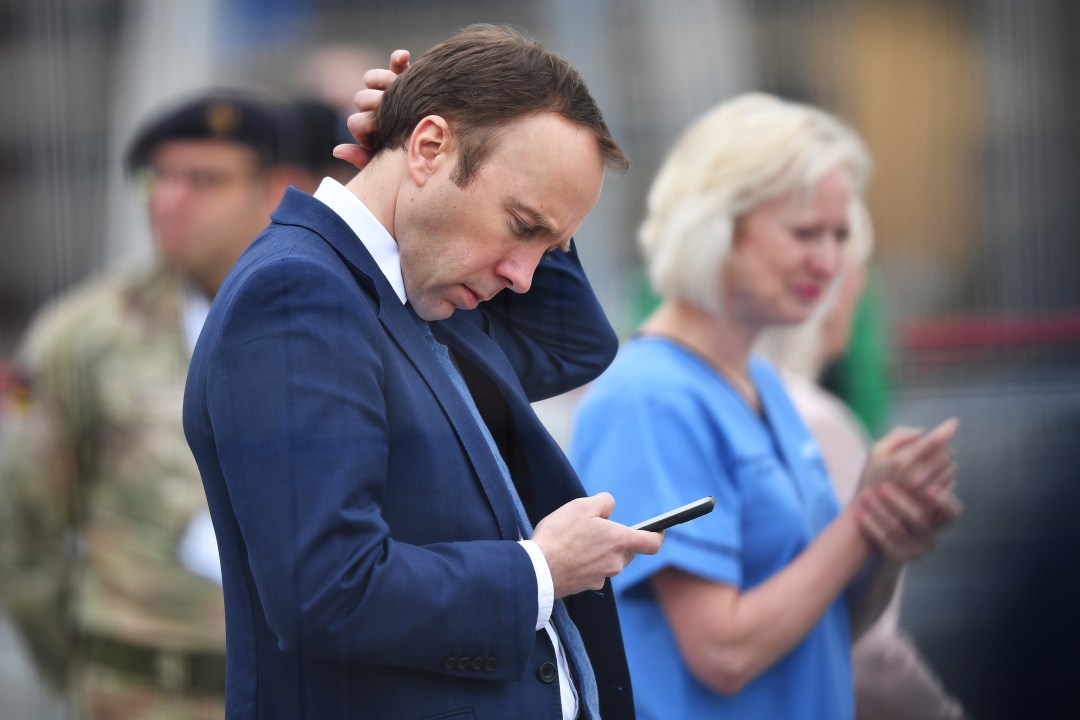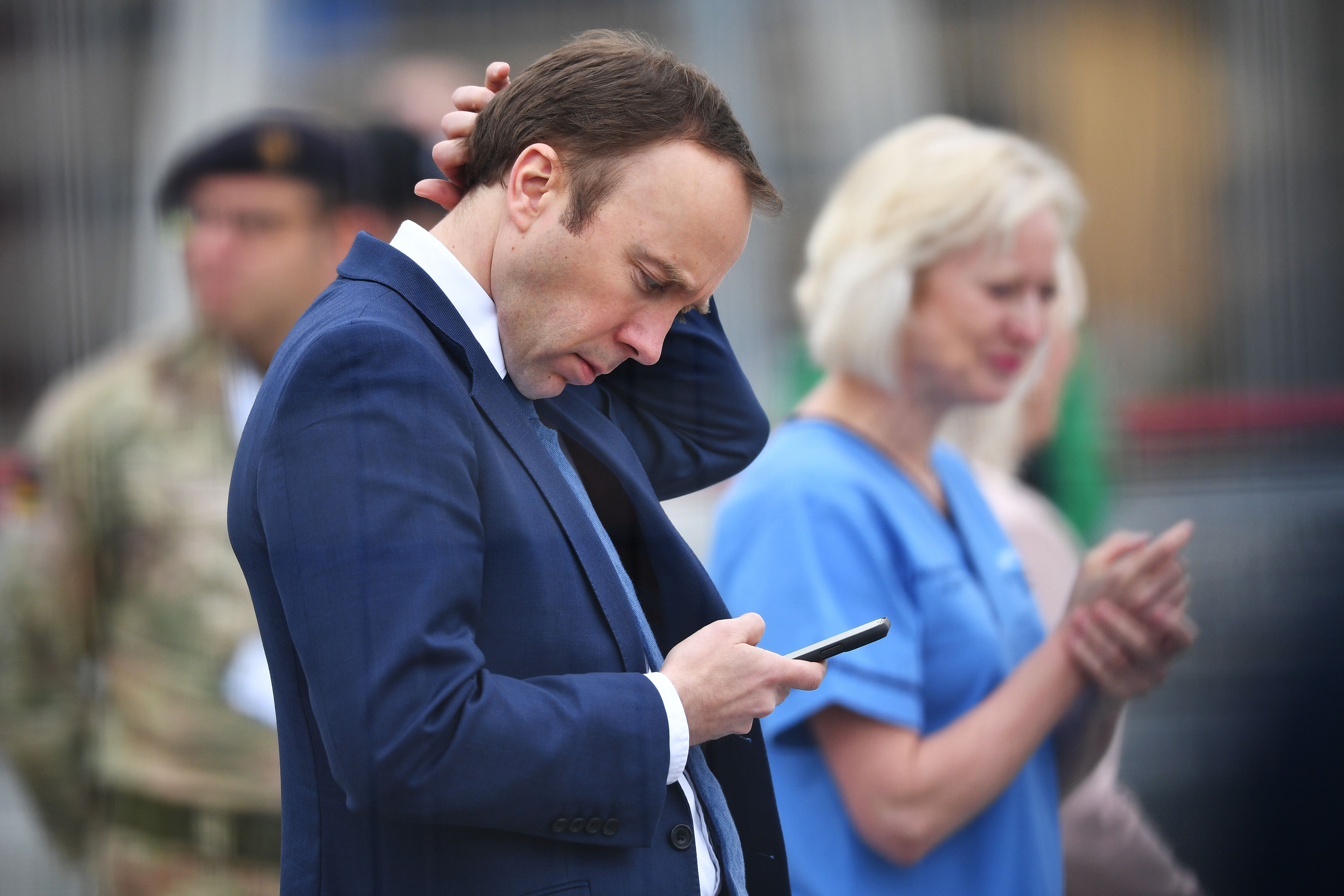It’s not unusual that the left and right hands of government don’t know what the other is doing: despite being based in the same postcode, different departments are notoriously bad at communicating. They even stop speaking to one another occasionally, with secretaries of state blocking new policies at what is known as the ‘write-round’ stage of policy development. This is where ministers consult colleagues across government on a policy, which others can then block. Sometimes departments have such a strong objection to a policy in another ministry that they refuse to sign off anything else through write-rounds until this plan is dropped. But this polite form of hostage-taking is far less common than the practice of announcing something without thinking about whether it makes any sense in the wider context of what the government is doing.
With that in mind, it’s worth asking whether Matt Hancock thought through his call for doctors to switch to ‘Zoom medicine’ in the context of what the government wants to do with healthcare. In a speech to the Royal College of Physicians last week, he announced that ‘from now on, all consultations should be teleconsultations unless there’s a compelling clinical reason not to’. He argued:
‘Of course, if there’s an emergency, the NHS will be ready and waiting to see you in person – just as it always has been. But if they are able to patients should get in contact first – via the web or by calling in advance. That way, care is easier to manage and the NHS can deliver a much better service. Not only will it make life quicker and easier for patients. But free up clinicians to concentrate on what really matters.’
The pandemic may have shown us that there are passable ways of staying in touch when it is forbidden to meet in person, but it has not dramatically changed the ways in which humans have evolved to communicate
It’s a compelling case, isn’t it? Who’d choose sitting in a busy waiting room for half an hour over staying at home until the doctor is ready to see you on Zoom? Hancock even pointed out that people previously thought to struggle with technology have started to use it during the pandemic to stay in touch with their families, and so the view ‘that anyone over the age of 25 simply could not cope with anything other than a face-to-face appointment’ no longer applied.
Even GPs, who say their work relies on good relationships with patients, accept that there is more room than they’d thought for remote consultations, particularly when it comes to managing repeat prescriptions and so on. But when you look at Hancock’s call alongside two other recent government announcements, it makes rather less sense.
Firstly, ministers are currently trying to promote something called ‘social prescribing’, which is basically an acceptance that patients with mental health problems, chronic pain, inflammatory conditions and so on can often manage their conditions more effectively through activities such as running, art, animal care and so on rather than medication such as painkillers (or that they can at least reduce their need for medication). Environment Secretary George Eustice recently launched £4 million of funding for a green social prescribing pilot for four urban and rural areas hit hardest by coronavirus. Some doctors have been doling out social prescriptions for years: the Bromley-by-Bow Centre in east London takes referrals from GPs of people who have problems that medicine won’t solve. This practice prescribes running, walking, debt advice and so on, and the doctors who use it are overwhelmingly positive, with 95 per cent saying that social prescribing brought well-being to their patients.
Social prescribing means patients are less likely to return time and again to their doctor with the same problem, because its underlying causes are being addressed properly. They might be loneliness, or physical problems caused by obesity, or low mood.
But as I discovered in my recent book, The Natural Health Service, social prescribing only really works when a healthcare professional – not always a doctor – really takes time to get to know a patient and works out what will actually help them. Even with the best Zoom quality in the world, this is very difficult to do remotely. The pandemic may have shown us that there are passable ways of staying in touch when it is forbidden to meet in person, but it has not dramatically changed the ways in which humans have evolved to communicate. It is still easier for a clinician to observe the mental state of a patient in person, on the basis of social cues such as eye contact, the way someone has dressed for the appointment and even their ability to make the appointment on time. Body language such as hunching the shoulders and fidgeting hands can tell a very different story to the one coming out of a patient’s mouth. A GP or a psychiatrist will struggle to pick many of these up over Zoom.
Similarly, link workers may struggle to build a sufficiently strong rapport with a patient to enable them to develop a social prescription with a good chance of working. There is no point prescribing running to someone who really hates the sport, for instance.
This isn’t just relevant to mental health problems, but also physical ones. And this makes a second ministerial drive, to tackle obesity, look a little nonsensical too.
So remote consultations might solve the presenting problem swiftly, but may in the long term mean a patient stays in that vicious circle of returning to the doctor for more painkillers or for the social contact they lack elsewhere. Coronavirus has shaken up so much of our society. But it hasn’t really changed one of our most basic needs, which is for sincere human contact. Even those who genuinely enjoyed their family zoom quizzes during lockdown know that. Hancock may find that there are many ‘clinically compelling reasons’ which mean Zoom medicine never really takes off.








Comments